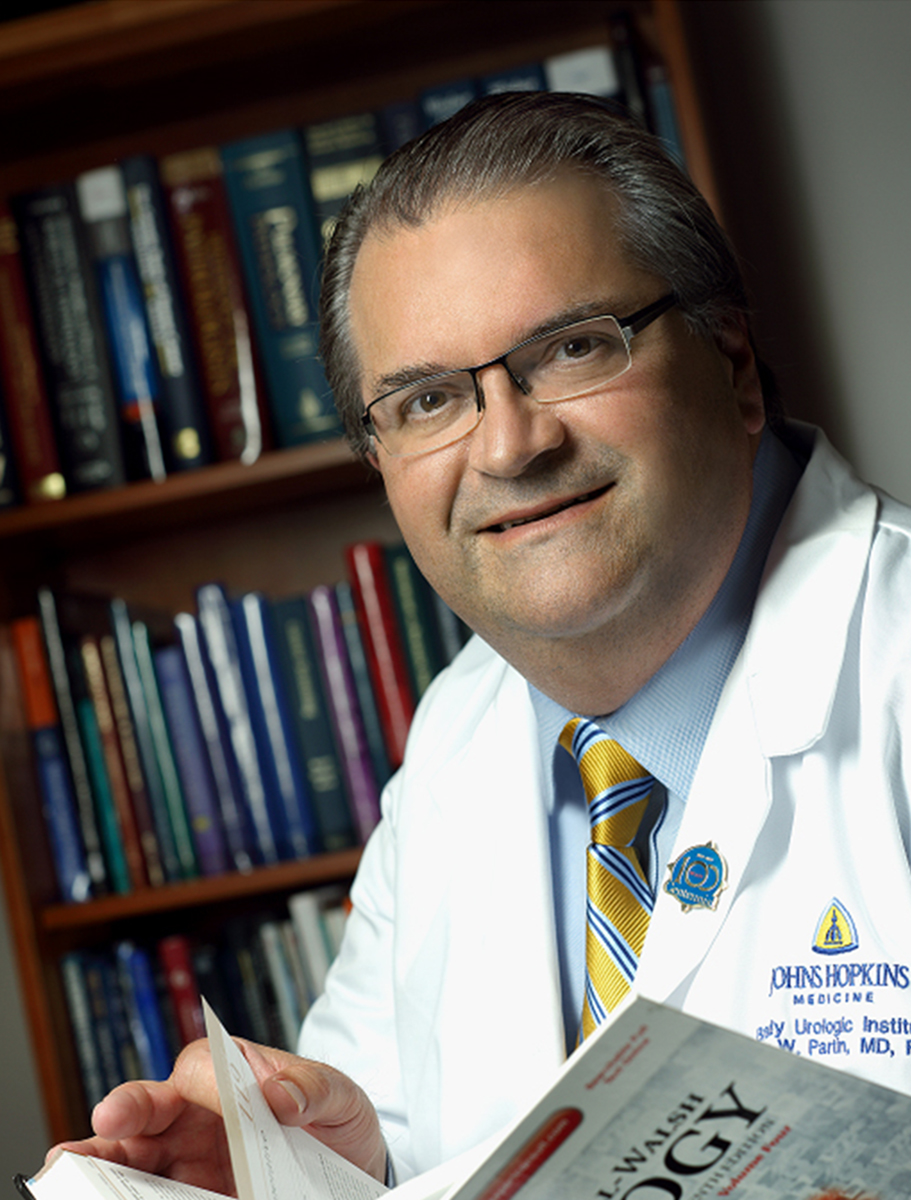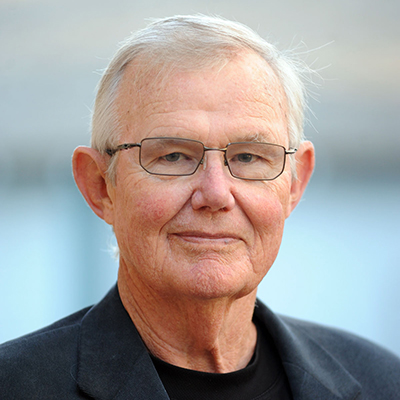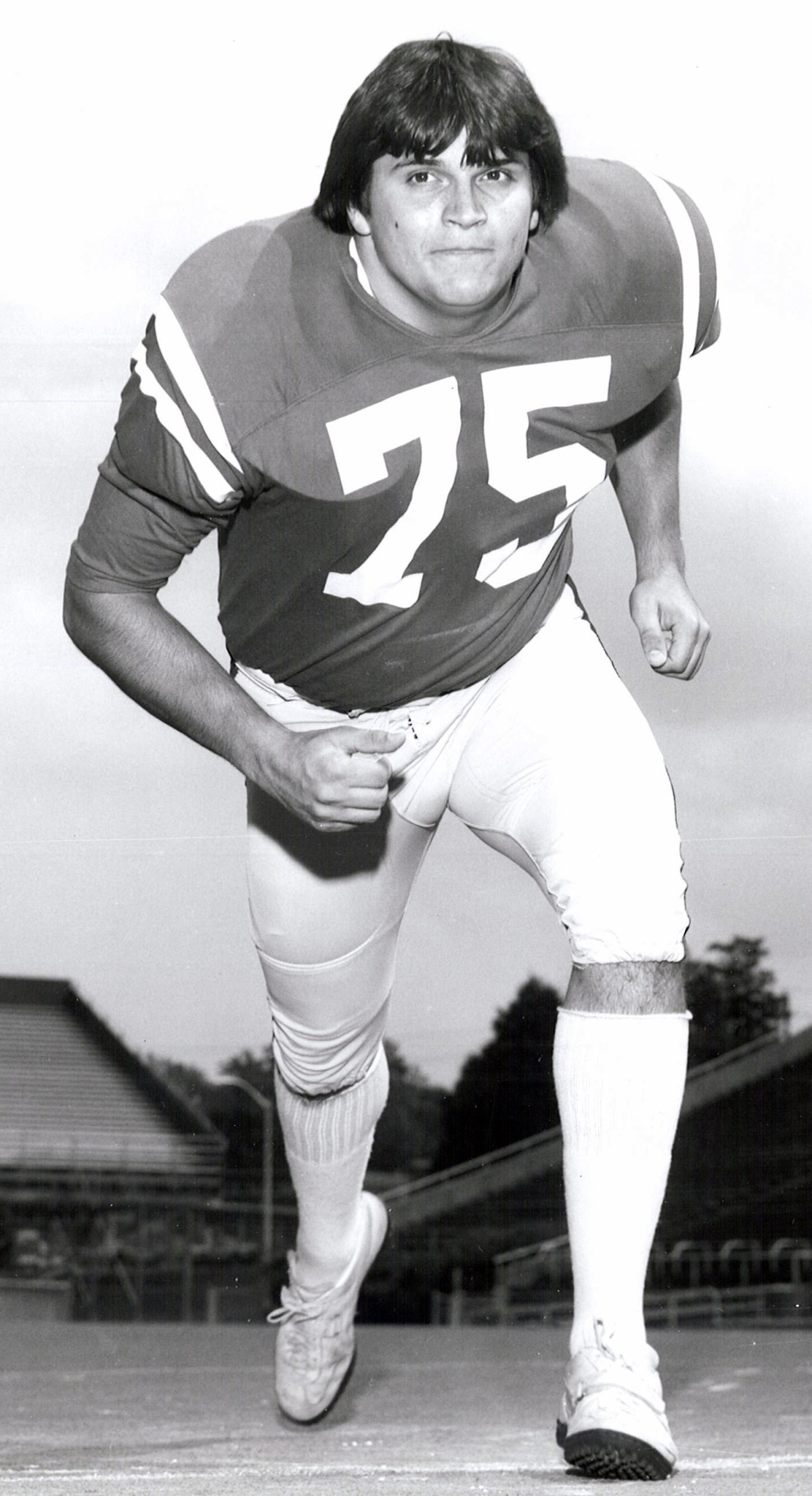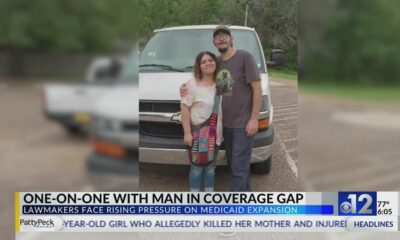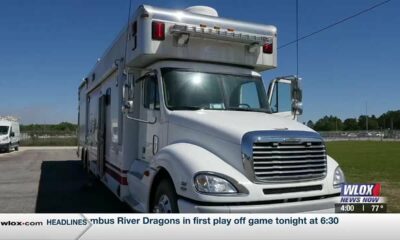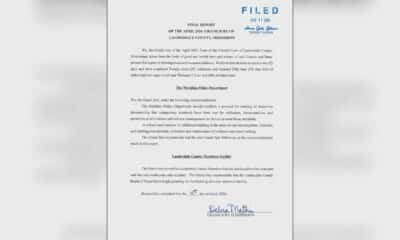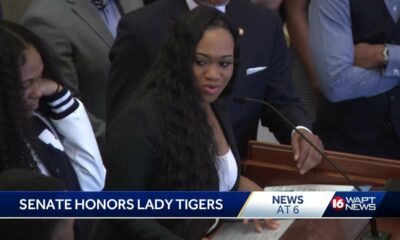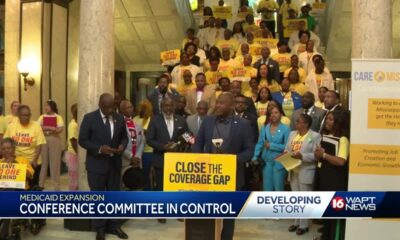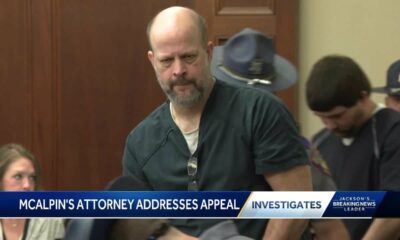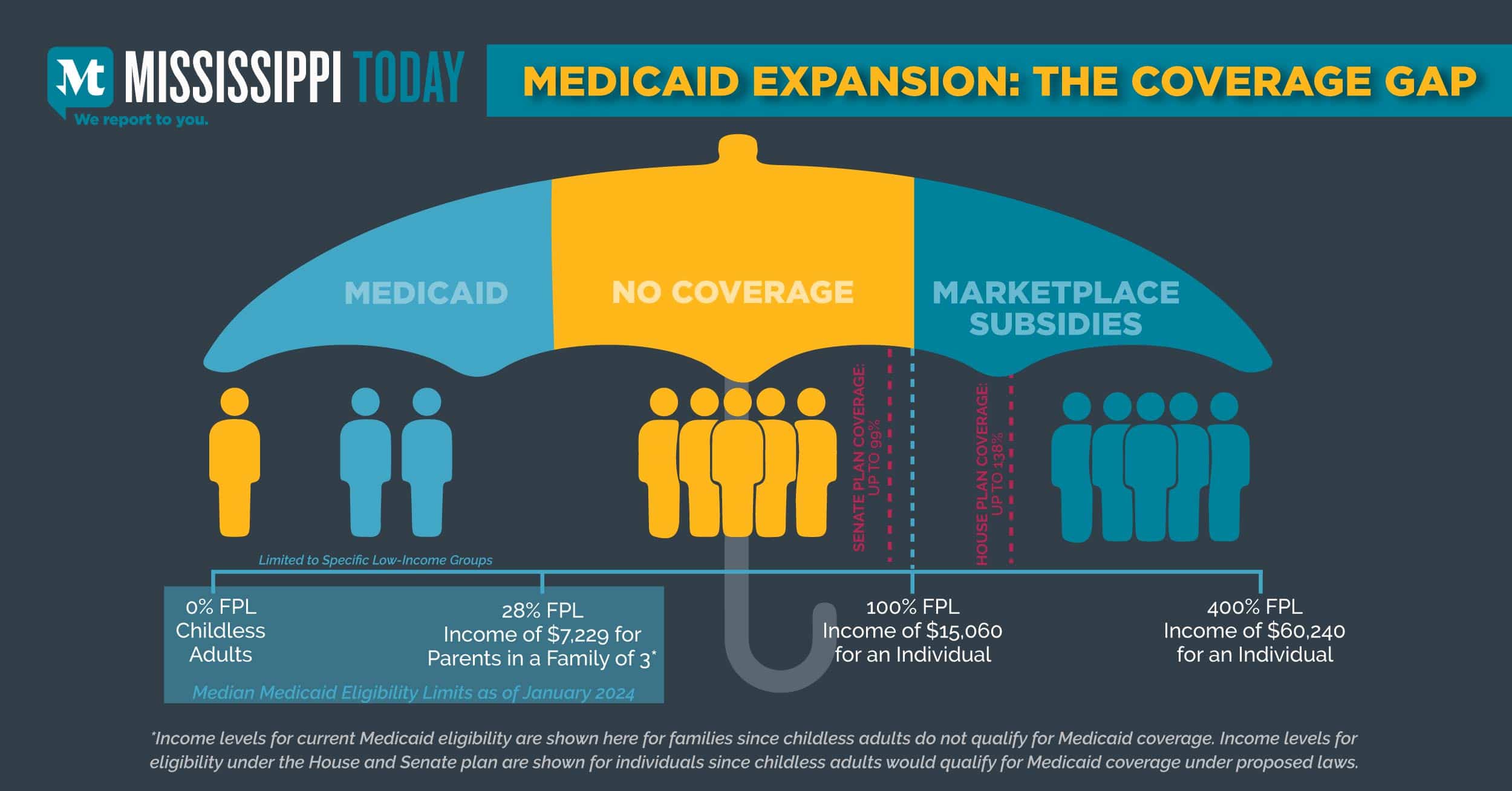Mississippi Today
Alan Partin: From Ole Miss football to a remarkable medical career

Alan Partin: From Ole Miss football to a remarkable medical career
They are called the Partin Tables, named for Dr. Alan Partin, the renowned Johns Hopkins urologist who created the ground-breaking medical reference material. Partin developed the tables when he wasn't performing hundreds and hundreds of often life-saving prostate surgeries a year.
And you may wonder why a sports writer would write about such an obscure (if invaluable) medical reference. It is because Partin, who died on March 28 at age 62, grew up in Grenada and played college football at Ole Miss.
“Smartest damn guy I ever met,” said Madison resident Tim Bell, who was a student trainer for the Ole Miss football staff during the early 1980s when Partin played in the offensive line for the Rebels.
“Most guys played college football hoping to get to the pros,” Bell said. “Alan Partin knew he was gonna be a doctor, knew he was going to be a surgeon, knew he was going to study at Johns Hopkins. He was super, super intelligent and he was driven.”
So much for the hackneyed image of offensive linemen as dumb jocks. Partin, a chemistry and pre-med major, made straight A's at Ole Miss. He was brilliant. He was far from alone among offensive linemen, and we'll get to that.
Just google “Partin Tables” if you want to learn how smart Partin was. Developed in 1993, the tables are based “on thousands of nerve-sparing radical retropubic prostatectomies…”
Asked to put the Partin Tables in layman's terms, Dr. Charles Pound, division chief of urology at University of Mississippi Medical Center (UMMC), said, “It was a big deal. It is a big deal. For many years, it was the best tool you had to help doctors and patients make decisions on prostrate treatment. It gave you the info about the stage of your disease. It is still very helpful today. I still use it.”
As it turns out, Pound studied under Partin at Johns Hopkins and they were good friends. Indeed, Pound was the best man in Partin's second wedding.
“I met him when I was a student and he was a resident at Johns Hopkins, and then we worked together for three or four years,” Pound said. “Clearly, Alan was really, really intelligent, but I'm not so sure that his drive and determination were not his greatest assets. He would take on anything with sheer determination and nearly always succeed. He was special.”
Dr. Theodore L. Deweese, CEO of Johns Hopkins Medicine, worked closely with Partin for years and issued a statement at the time of his cohort's death. “Throughout his career as a researcher, clinician and a leader, Alan Partin was consistently at the heart of discovery and innovation in the filed of urology, always keeping a singular focus on improving the outcomes for our patients.”
Football, Partin often said, helped prepare him for his medical career. In a 2016 interview, Partin talked about the correlation. “You think you're running to the right, then the defense changes and now you're going left. Everything can change in a split second…” Partin said. “As a surgeon, you have to do that non-stop. No surgery is the same.
“Everybody has anatomical variations,” he continued. “I remove men's prostates when they have cancer. There are literally 387 well-defined maneuvers in that operation. Then you get inside a patient and notice an artery that isn't supposed to be there is running across the area where you are operating. You have to change what you are doing. You have to adapt to that moment. That's like coming up to the line and expecting to see one defense and they've shifted into another other. You still want to move the ball forward, so you have to think quickly, change up what you were doing and run the play.”
There's one other striking similarity between playing in the offensive line and being a doctor. Put it this way: An offensive lineman is the only position in which the ultimate goal is to protect someone else.
More than half a century of experience covering the sport has led this writer to this conclusion: Offensive linemen are often not only the smartest, but also most diligent and most selfless players on the field.
Selfless might be the most important of those traits. An offensive lineman toils mostly in obscurity, noticed only when an umpire throws his flag, and the referee announces over the loudspeaker, “Holding, number 75, 10-yard penalty, repeat first down.”
Quarterbacks, running backs and wide receivers get the headlines; offensive linemen – often referred to as the Big Uglies, for goodness sake, simply pave their way. Certainly not all become nearly as successful as Dr. Alan Partin, but let's take a quick look at some of Partin's Ole Miss teammates. Hoppy Cole, Partin's roommate, owns banks. Murray Whitaker became a cardiologist. David Traxler runs a highly successful technology company in North Carolina. Greg Jeffcoat became a college registrar. Bobby Dye runs a successful resource management and financial planning company. Marc Massengale is another successful financial adviser. And then, of course, there's Partin. That's all from one team's offensive line. Amazing.
Cole, who lives in Ellisville, was Partin's college roommate for three and a half years.
“Big Al is what we called him,” Cole said. “Such a great guy, such a great friend – funny, kind, thoughtful and so, so smart.”
“Big Al and I made T-shirts that said we were part of the 30-30-30 club,” Cole said.
30-30-30?
“Yeah, that meant we played when we were either 30 points ahead, 30 points behind or there were 30 seconds left,” Cole said, chuckling.
That's an exaggeration. I covered those Ole Miss teams. They played far more more than that.
The record will show that those Ole Miss teams (1979-82) lost more games than they won.
Thankfully, far more meaningful and lasting measures of achievement exist, which don't always get reported. And in those measures, Dr. Big Al Partin and his partners in the Ole Miss offensive line, proved smashing successes.
This article first appeared on Mississippi Today and is republished here under a Creative Commons license.
Mississippi Today
Mississippi Capitol sees second day of hundreds rallying for ‘full Medicaid expansion now’

Hundreds of people rallied at the Mississippi Capitol for a second day Wednesday, urging lawmakers to expand Medicaid to provide health coverage for an estimated 200,000 Mississippians.
After faith leaders spoke at the Capitol on Tuesday, Care4Mississippi, a coalition of advocates, held a rally Wednesday. Speakers recounted their struggles with access to affordable health care in Mississippi and chanted for the Legislature to, “Close the coverage gap now,” and for “Full Medicaid expansion now.”
Stephanie Jenkins of McComb, a former social worker, lost her job and health insurance after a car wreck left her with debilitating injuries.
She said she later received some medical treatment from the University of Mississippi Medical Center, but still suffers from chronic pain and other ailments. She said she was told she could not receive Medicaid coverage because she owns too much property.
Jenkins said that years after her accident, “I'm still fighting that battle. I'm still trying to get health insurance. I am still trying to get Medicaid … The state of Mississippi does not realize that it is not about money. It is not about race. It is about people. People are dying because they have no health insurance.”
Dr. Randy Easterling, a Vicksburg family physician and former executive director of the Mississippi Medical Association, spoke in favor of Medicaid expansion. He said the people who would be helped by the expansion primarily work at jobs that do not provide health care and they do not earn enough to purchase private insurance. Many are small business owners.
Easterling said often times the insurance policies available through the federal marketplace exchange have out-of-pocket costs that make them unaffordable for working people if they get sick.
Easterling recounted a story of two of his friends diagnosed with similar cancers. One was uninsured and self-employed, and did not get early diagnosis or treatment. He's now in hospice and on death's door. The other friend, with insurance, received an early diagnosis and treatment and is now cancer free.
“This is a matter of life and death. It is certainly more than a political debate,” Easterling told the crowd.
But the issue of expanding Medicaid is currently engulfed in the political process of the Mississippi Legislature. The House has passed a bill to expand Medicaid as is allowed under federal law to cover those earning up to 138% of the federal poverty or about $20,000 annually for an individual. Under the House plan, the federal government would pay 90% of the health care costs and provide the state with almost $700 million more over the first two years as incentive to expand Medicaid as 40 other states have done.
READ MORE: Experts analyze House, Senate Medicaid expansion proposals, offer compromise plan
Under the Senate plan, coverage would be provided to working people earning less than 100% of the federal poverty level and the federal government would pay much less of the costs.
Studies indicate that the Senate plan would cost the state more and cover fewer people. At the rally, people wore yellow T-shirts that read, “close the coverage gap” and “leave no one behind.”
Easterling said that by refusing to expand Medicaid for the last 11 years, “This state has struck a match to $12 billion … and that money was earmarked specifically to increase access to health care.”
He added, “Two days ago most of us wrote a check to the IRS. Now explain to me in simple terms, I am pretty simple, why my (federal) tax money in Mississippi went to increase access to health care in 40 states and not any of it came back to Mississippi.”
“We take federal money right and left,” Easterling said. “We take hundreds of millions of federal dollars for highways, education, the Health Department, law enforcement and natural disasters … But for some reason we push back on additional money for health care. I would submit to you this is a matter of life and death.”
Robin Y. Jackson, with the Mississippi Black Women's Roudtable, told of dropping out of school to care for a family member. In the process she developed a chronic health problem. She said she was unable to get help, but later got a job with health insurance even though her employer knew she had costly medical maladies. After surgeries costing tens of thousands of dollars, she said she is finally well.
“I was lucky,” she said. Others are not so lucky. She said with Medicaid expansion everyone could receive the treatment she was lucky enough to receive.
She said as shepherds of Mississippians, politicians should strive “to leave no one behind.”
Sonya Williams Branes, a former legislator, a small business owner and state policy director for the Southern Poverty Law Center, recounted the struggles she faced with her young son who had chronic asthma. As a small business owner at the time, she struggled to provide health care for her family and her employees.
“To ensure my son remained eligible for CHIP, a program that provided him with vital medical care, I was forced into a corner,” Barnes said. “Making more money, expanding my business and hiring more staff – all paths to improving our lives – would disqualify him from the program, pushing essential health care out of reach.
“Our system is broken,” Barnes said. “It punishes ambition and stifles growth.”
Before the Care4Mississippi rally, the Legislative Black Caucus on Wednesday morning held a press conference calling for adoption of the House's more expansive Medicaid coverage plan.
“We remain committed to having full expansion and covering as many working Mississippians as possible,” said House Minority Leader Robert Johnson, D-Natchez. “Our goal is to sustain health care in Mississippi and sustain it in a way that it doesn't matter where you live or what your income is.”
This article first appeared on Mississippi Today and is republished here under a Creative Commons license.
Mississippi Stories
Mississippi Stories: Natalie Moore
Mississippi Stories: Natalie Moore
In this episode of Mississippi Stories, Mississippi Today Editor-at-Large Marshall Ramsey sits down with Natalie Moore, Peer Wellness Support Services Coordinator for the Mississippi Mental Health Association. Moore and Ramsey share their experiences battling mental health issues and the Congregational Recovery Outreach Program's upcoming mental health summit.
CROP is a faith-based, grant program that aims to help individuals recovering from substance use disorders and mental illnesses.
This article first appeared on Mississippi Today and is republished here under a Creative Commons license.
Mississippi Today
On this day in 1863
April 17, 1863

As darkness fell on San Francisco, a young Black woman named Charlotte Brown walked a block from her home on Filbert Street and took a seat on the “whites-only” horse-drawn streetcar.
She and her family had moved to California from Maryland, a part of the city's burgeoning Black middle class. Her father, James E. Brown, was an anti-slavery crusader and was a partner in the Black newspaper, Mirror of the Times.
When the conductor came to collect tickets, she handed him the ticket she had purchased, only for him to refuse to take it.
“He replied that colored persons were not allowed to ride,” she later testified. “I told him I had been in the habit of riding ever since the cars had been running. I answered that I had a great ways to go and I was later than I ought to be.”
The conductor asked her several times to leave. Each time she refused. When a white woman objected to her presence, the conductor grabbed her by the arm and forced her off the streetcar. She boarded twice more with the same result and sued.
Two years later, a jury awarded her the huge sum in her day of $500 (streetcar tickets were just 5 cents), and a judge ruled that barring passengers on the basis of race was illegal. He wrote in his ruling that he had no desire to “perpetuate a relic of barbarism.”
Her victories paved the way for the official end of racial discrimination on streetcars in San Francisco and beyond.
This article first appeared on Mississippi Today and is republished here under a Creative Commons license.
-
Mississippi News4 days ago
Mississippi will soon be bombarded with cicadas
-
SuperTalk FM2 days ago
4 tornadoes touched down in Mississippi during latest round of severe storms
-
SuperTalk FM3 days ago
2 Jones County correctional officers arrested in smuggling bust
-
Mississippi News5 days ago
Columbus schools may see needed upgrades with bond issue
-
Local News3 days ago
Almost 3,500 Mississippi Veterans have enrolled in VA health care in past 365 days, 28% increase over last year
-
SuperTalk FM12 hours ago
Chance of parole denied for man who killed 3 Choctaw Indian tribal members
-
SuperTalk FM6 days ago
Explosion at elementary school in Mississippi Delta hospitalizes two employees
-
SuperTalk FM2 days ago
Amazon project in Madison County to be over $10B, create more jobs than projected: report
